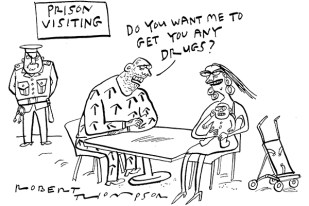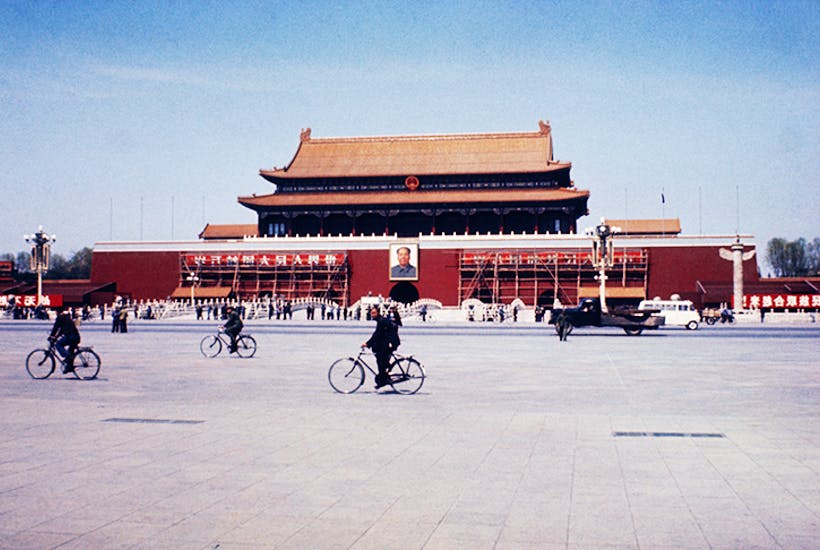This book is a rather startling depiction of Hugh Trevor-Roper’s involvement with the Society for Anglo-Chinese Understanding (SACU), his sponsored visit to China in October 1965 (just months before the Cultural Revolution got under way) and his efforts to find out who actually controlled and funded SACU.
Having been induced to be a sponsor of the society on legitimate grounds of interest in China and its history, Trevor-Roper was a last-minute addition to a delegation visiting Beijing and Xian. He was promised freedom of movement and access, though the reality turned out quite differently. The China Journals thus comprises four sections: Trevor-Roper’s diary of his three-week visit; his diary of his time in Oxford and London two months later, when he tries to get to the bottom of SACU; his suppressed Encounter article on the episode; and a diary of a later visit to Taiwan and Cambodia. This last is tangential to the purpose of the book, but presumably included for balance on Trevor-Roper’s feelings about China. (He uses phrases such as ‘the worthless Chinese’ and others even less complimentary.)
The first section is the most interesting. Trevor-Roper is lumped with three other fellow travellers: Mary Adams, a stereo-typical upper-middle-class committee-joiner and do-gooder; Ernie Roberts, assistant secretary-general of the Amalgamated Engineering Union, a bon vivant and claimer of proletarian virtue; and Robert Bolt, the playwright. He is soon exasperated by the vanities and stupidities of Adams and Roberts, and the diary is littered with amusingly poisonous portraits of them.

But, more seriously, the promises of free access and movement turn out to be worthless. The group is forced to remain together, every visit choreographed and monitored by interpreters and political minders, every question and request for information treated with the utmost suspicion, every interaction guarded. (The one time Trevor-Roper does get to meet Chinese historians they remain almost silent, visibly frustrated at being minded by their voluble professor, a party hack.)
Political discourse is also sterile. (Roland Barthes, during his own tour of China in 1974, called the outpourings of tedious ideological rhetoric ‘bricks’: visitors then were subjected to enough to build a house.) War threatens between India and Pakistan during the tour; Pakistan is an ally of China, India a rival, so the conflict can only be framed in a Manichean manner — or, as the guides put it, by reference to ‘objective facts’. Bolt dares to suggest that the truth isn’t so clear cut, only to be battered by more verbal bricks.
Less seriously, or more entertainingly, their guides behave like every incompetent low-scale Chinese authority — which will be familiar to anyone who has endured peremptory but bungling hotel or station staff there. Trevor-Roper and Bolt give them nicknames, such as Cement-head, Duck-bottom and Smooth-face.
But it’s not all contempt. Trevor-Roper manages to abscond a few times, and throbs with pleasure at old Beijing:
There were imposing hollow facades, frontispieces of exquisitely carved stone, carved wood reliefs, armigerous gateways leading into alleyways or courtyards, and stylised flora and fauna at every point; toad-like lions squatting on cottage doorsteps, proud, rampant lions on balustraded roofs, here a stone stork on a cottage chimney, there a caparisoned elephant in relief over a cottage door, festoons of fruit and flowers carved in relief over doors and windows.
He also relishes Chinese opera, the Temple of Heaven and the Forbidden City — though he abhors the ‘totalitarian megalithic style’ of the Great Hall of the People — as well as the vivacity of the ordinary Chinese.
The subsequent sections concern his efforts to expose SACU as a communist front. He writes that, as a sponsor of the society, he feels obliged not to resign but to attempt to restore it to its proper purpose. This is rather patrician of him, but you sense he also enjoys the conflict, as well as despising the bad faith, lies and double-dealing that go with communist parties (and what he calls the communisant). The Encounter article concerns not his visit but the story of SACU and is a fine example of his journalism, with its wit and insight.
The China Journals is not perhaps an important book. SACU is a mere pimple on Anglo-Chinese relations, and the behaviours of communist fronts are tediously familiar. But it is enjoyable for the human comedy and high quality of Trevor-Roper’s prose. It is, however, rather eccentrically edited. The introduction is unfathomably long, around 50 pages, and grindingly detailed. The footnotes are also stuffed with extraneous information. But you can skip all that and simply savour Trevor-Roper’s moral outrage, aesthetic feeling, keen political antennae and judicious penmanship.






Comments